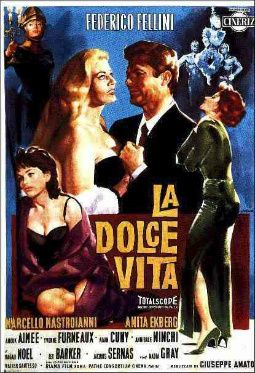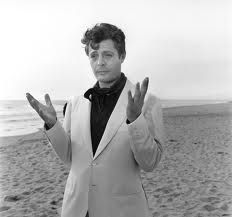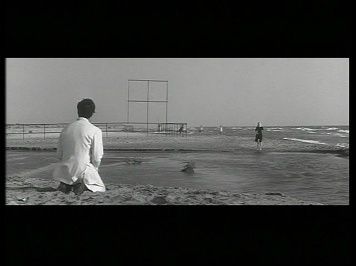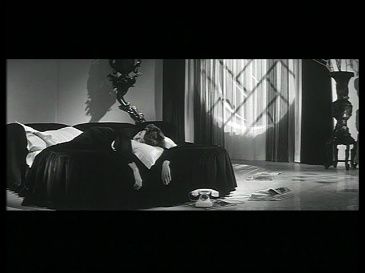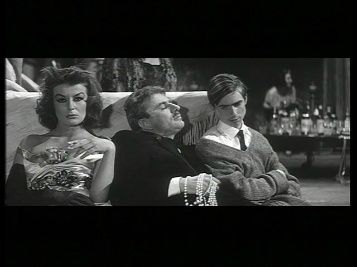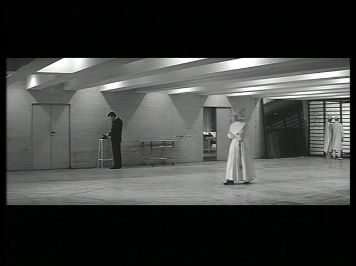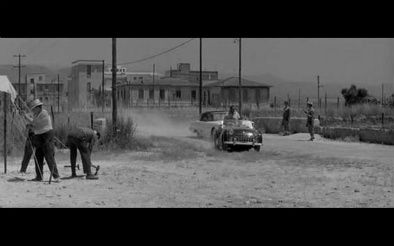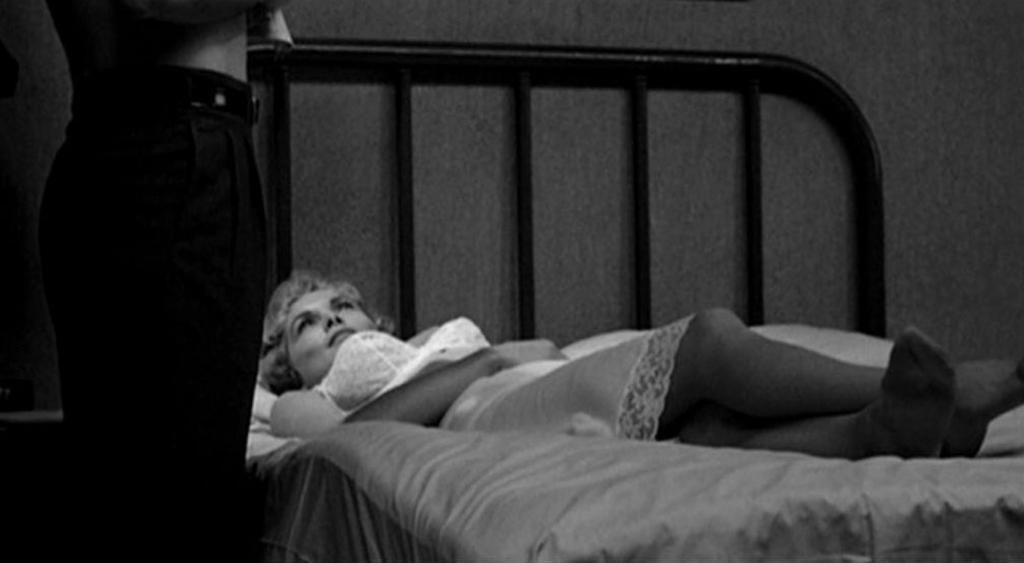The
Apartment
1960
Director: Billy Wilder
Starring: Jack Lemmon, Shirley
MacLaine, Fred MacMurray
If
there is such a thing as a perfect film, The Apartment strikes awfully close
to the mark. Full of quiet comedy and a
streak of pathos so deep that it seems to become sadder the more I think about
it, The
Apartment is utterly lovely from open to finish. It certainly helps that when I think about
“my type” of film, The Apartment fits the bill almost to the tee. I have always preferred what I call “small
films,” films that have a story that only concerns a handful of people in a
limited number of locations dealing with regular, ordinary, everyday
problems. And while the central conceit
of The
Apartment is played for ludicrous satire, it is so gloriously small in
its scope that I love it more and more each time I see it. This is my kind of movie.
C.C.
Baxter (Lemmon) works in insurance in a big, generic corporation in
Manhattan. He often works late, not
because he’s driven but because four of his bosses regularly use his apartment
in the west sixties as a trysting place for their extramarital affairs. Baxter trades his apartment for promotions at
work, leading him to ultimately come up before big boss Sheldrake (MacMurray)
who has heard about Baxter’s place through the grapevine. Sheldrake wants to use the apartment as well
to continue his affair with cute and perky elevator girl Fran Kubelik
(MacLaine). Thing is, though, that
Baxter, has fallen hard for Fran, not knowing she is Sheldrake’s lover. Fran, for her part, is too hung up on the
married guy she knows is no good to pay any notice to Baxter’s earnest
attentions. Things come to a head when
Fran is dumped in Baxter’s apartment.
While
there’s certainly more to this film than C.C. Baxter as played by Jack Lemmon,
it can be hard for me to see it. This
central character and this brilliant performance completely make the film for
me. This is my personal favorite Jack
Lemmon performance because it strikes such a fine balance between comedy and
tragedy. Lemmon makes me laugh as he
watches his typewriter at his desk, nodding his head along with its
rhythm. About an hour later, he breaks
my heart as he frantically paces his apartment after finding a comatose Fran
lying in his bed. Neither is played too
extreme; Lemmon, definitely known for his hammy comedic talents (and I mean
that in the best possible way) never lets his hamminess completely take over
the lighthearted scenes. The opposite is
true as well; when the tenor turns more somber, he never dreams of ranting and
raving and throwing things around to express his angst. Instead, it’s all done so perfectly quietly
in his face where I can read the depth of sadness and worry he is feeling. Lemmon makes my heart ache in this film. He is utterly sublime.
But
Lemmon would not be as amazing as he is were it not for the creation of the
story itself, and that credit goes to Billy Wilder and I.A.L Diamond. Lemmon’s perfect blend of funny and
heart-wrenching pain comes directly from a story that makes it abundantly clear
from the get-go that no one is above reproach.
No heroes, no villains, just regular people making bad choices. Sheldrake is perhaps the clearest-cut villain
from the cast of characters, but even he seems less dastardly and more simply
an arrogant man used to getting his way.
There are even moments where I feel sympathy for him (albeit not
many). And Baxter? I suppose he is the de facto hero, but what I
adore about this story is that really, he is not. Is Baxter a good person? Well, that depends. At first glance, yes, you see his earnest
interest in Fran and you think, wow, what a nice guy. You see him throw away what other people
think of him in order to take the blame himself rather than incriminate others,
and his self-sacrifice seems positively noble.
Indeed, that self-sacrifice is another component of Lemmon’s performance
as Baxter that utterly breaks my heart.
But then back it up: Baxter trades his apartment, where he lives, for
its use for sexual favors, all in order to climb the corporate ladder. He has sold more than a bit of his soul,
making seedy bargains to work his way to that elusive corner office. From the very beginning, I yearn for Baxter to
finally say “No” to his demanding bosses, his bosses who kick him out on the
street at 2am because they met a Marilyn Monroe lookalike (lovely little
in-joke from Wilder there), but he can’t.
He doesn’t have the necessary spine to get himself out of the web he’s
woven for himself and so simply keeps surrendering to the lewd demands of
others. Baxter, a hero? Hardly.
I think he is a good man, but deeply flawed, and he must learn to
overcome it in some small way.
Opposite
Baxter is MacLaine’s Fran Kubelik, another brilliantly written character. Fran is believably stuck in a toxic
relationship that she desperately wants to end yet cannot. I love that Fran knows in her head that she
needs to end the affair with Mr. Sheldrake.
Fran knows this, she says it over and over again. And yet, her heart won’t let her. She is in love with him despite desperately
not wanting to be. This makes her sad
and frustrated and everything comes to a head.
This sort of situation, of knowing that you SHOULDN’T be in a certain
relationship, yet not being able to actually cut and run, this is a difficult
situation to believably portray, but I believe it completely in The
Apartment. MacLaine is fantastic
and helps me believe that Fran knows better yet can’t find the strength to walk
away. So our two main characters, those
we feel should be our heroes, both can’t seem to find the strength to end the
morally reprehensible situations they find themselves stuck in.
It
is the utter ordinariness of the film that I love as well. The Apartment is rife with ordinary,
everyday touches that make me love it even more. I love Baxter’s drab little apartment that
only grows seedier as the film continues.
I love him unceremoniously lighting the oven and preparing a
foil-wrapped TV dinner. I love him
drinking the leftover cocktails from the party as his place. I love the electric blanket he has to plug
in. I love the simple feast of spaghetti
and meatballs he prepares, complete with grated Parmesan from a jar. I love Fran’s taxi driver of a brother-in-law. I love her broken compact mirror. There is no attempt to glamorize the sets in The
Apartment, and I love that. I
mean, I really love that. So gloriously,
perfectly ordinary, lumps and all.
There
is so much more to The Apartment; the fantastic set design, the gorgeous
cinematography, the witty banter, script-wise, and the rampant social
commentary running through the film. All
this is great and important, but that’s not why I love The Apartment. I love it because of its characters, because
of their brokenness, because of Jack Lemmon, because of the perfect tiny
details, and because it breaks my heart and makes me laugh at the exact same
time. And it’s aged extraordinarily
well. I recently put this on while my
parents were visiting, and my mother watched it in spite of herself. Still engrossing, still wonderful, still
relevant, still real.
Arbitrary
Rating: 10/10, ratings-wise.




